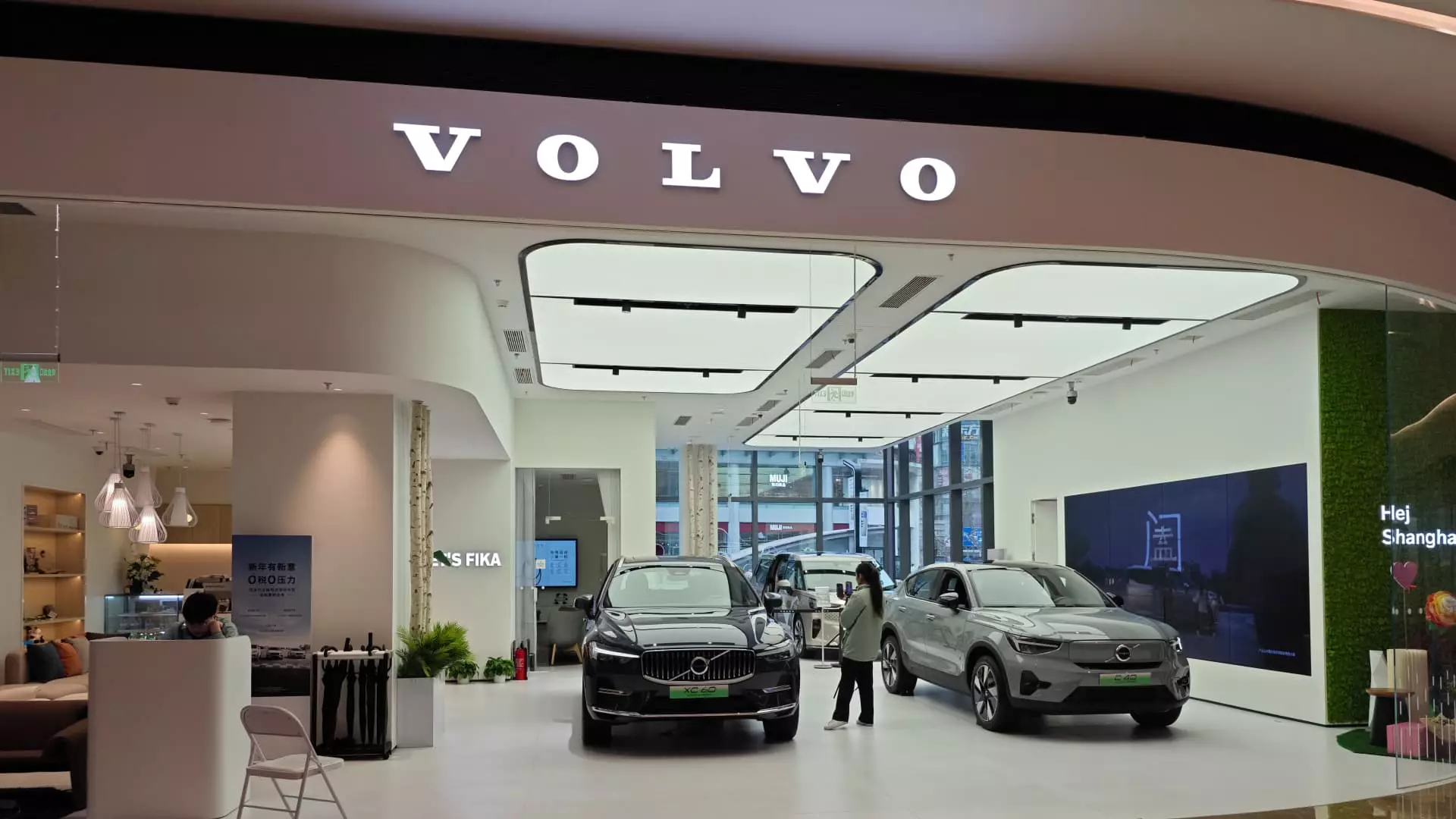Volvo Cars recently announced that it is adjusting its margin and revenue targets due to various factors, including global trade complexities and tariffs. The Swedish automaker, majority-owned by China’s Geely Holding, is now aiming for a 2026 EBIT margin goal of 7-8%, down from its previous target of “above 8%.” Additionally, Volvo Cars has shifted its focus to “continuing to outgrow the premium car market until 2026,” as opposed to the previously stated revenue target of 500-600 billion Swedish kronor.
Navigating the landscape of international trade disputes and tariffs has posed significant challenges for Volvo Cars and other automakers. The industry is grappling with geopolitical tensions between the European Union, China, and the U.S., all while trying to maintain a competitive edge in the midst of the electric vehicle (EV) transition. The shift towards EVs has been hindered by underwhelming consumer demand, insufficient charging infrastructure, and concerns about vehicle range.
Volvo Cars made headlines when it announced that it would no longer be targeting 100% all-electric vehicle sales by 2030. The company clarified that it is now aiming for a range of 90-100% electric vehicle sales, allowing room for mild hybrid models to continue to be sold. This decision was influenced by factors such as consumer demand, slow charging infrastructure rollout, withdrawal of government incentives, and uncertainty surrounding tariffs on EVs in various markets.
Despite the adjustments to its targets, Volvo Cars remains committed to the transition towards fully electric vehicles in the long term, when market conditions are suitable. The company is actively developing new features, including advanced driving assistance and autonomous driving, through an extended partnership with U.S. chip giant Nvidia. Additionally, Volvo Cars is streamlining its operations by moving towards a “single technology stack” to reduce the costs associated with EV manufacturing.
Recent figures released by Volvo Cars show a 3% year-on-year increase in global sales for August, driven by a significant 32% growth in Europe. However, sales in China experienced a notable decline of 23%. Out of a total of 52,944 vehicle sales in August, fully-electric and plug-in hybrids accounted for 47%, while the rest comprised mild hybrids and internal combustion engine vehicles. In July, the company reported a record quarterly operating profit of 8.2 billion Swedish kronor.
Volvo Cars’ decision to adjust its margin and revenue targets reflects the challenging environment faced by automakers in the current global trade landscape. By reevaluating its approach to electric vehicle sales and forging strategic partnerships, Volvo Cars is adapting to the ever-changing market dynamics and positioning itself for long-term success in the evolving automotive industry.

